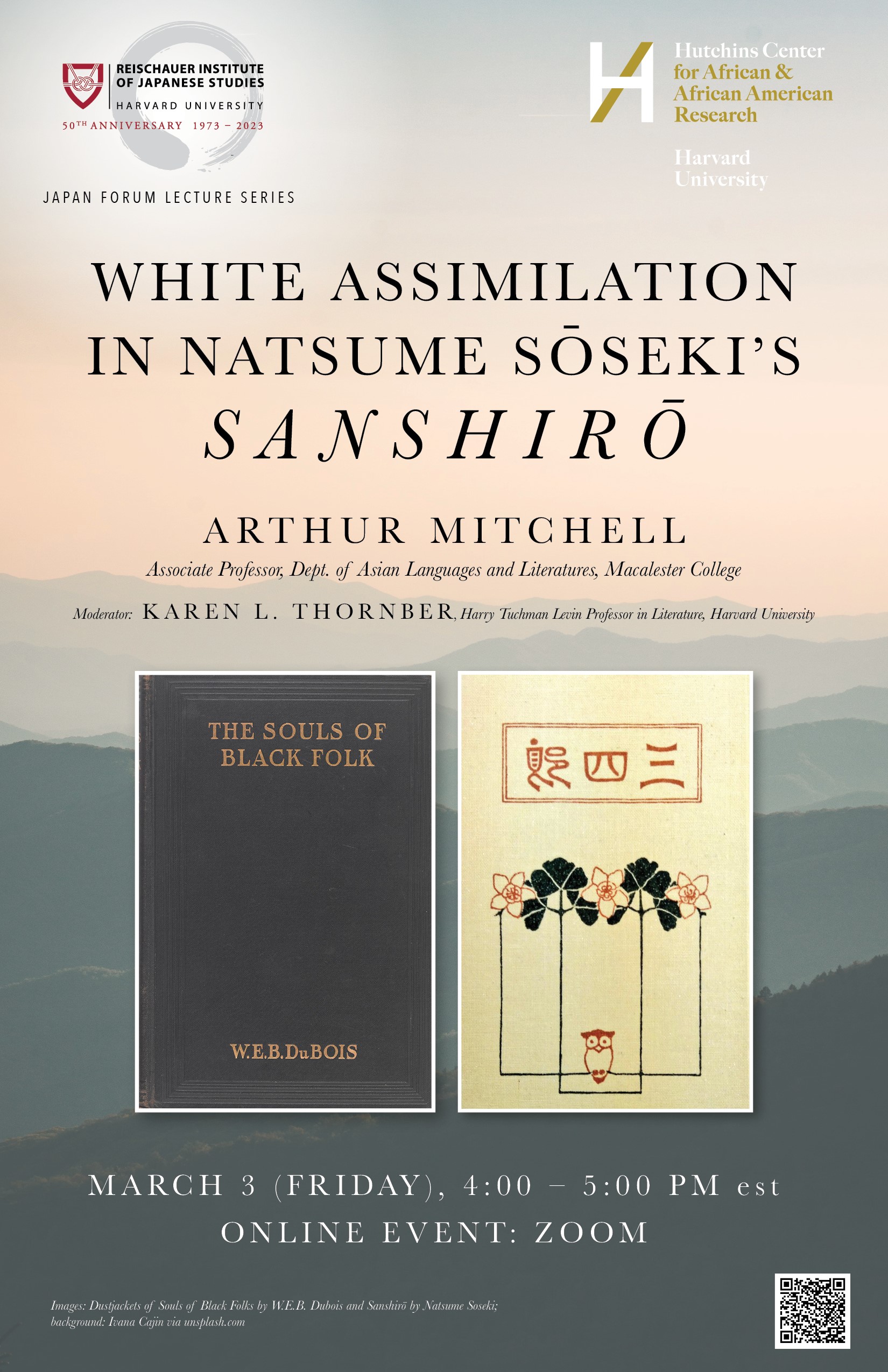White Assimilation in Natsume Sōseki’s Sanshirō
This talk explores the way Japan’s relationship with the world at the turn of the 19th century was undergirded by an acute racial consciousness toward Whiteness. This historical reality is investigated by first drawing parallels between modern Japanese literary icon Natsume Sōseki’s quest for self-hood in the early 1900’s and African-American sociologist W. E. B. Dubois’ concept of “double-consciousness” from his 1903 treatise, The Souls of Black Folk. This parallel is then used to read Sōseki’s canonical novel, Sanshirō (1908), the story of a provincial youth traveling to Tokyo to attend college, as a dramatization of the psychic consequences of racial assimilation. This presentation is part of a larger project that seeks to bring the innovations of critical race studies to bear upon readings of Japanese fiction and to the field of Japan Studies more broadly.
Reischauer Institute Japan Forum co-sponsored by the Hutchins Center for African & African American Research, Harvard University
